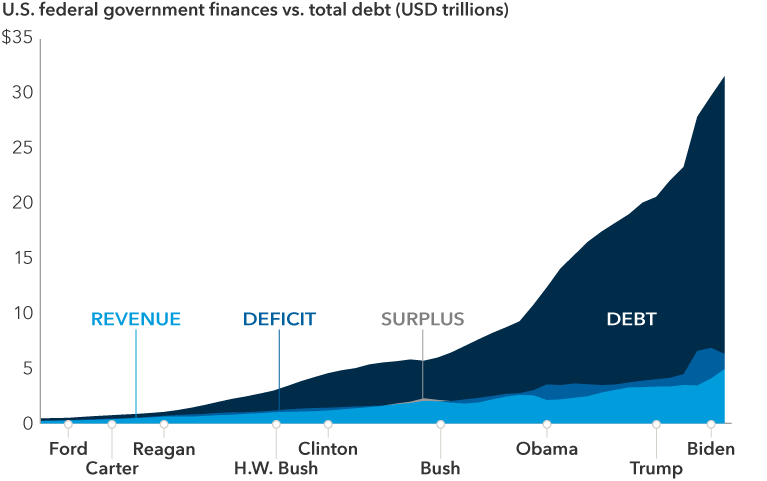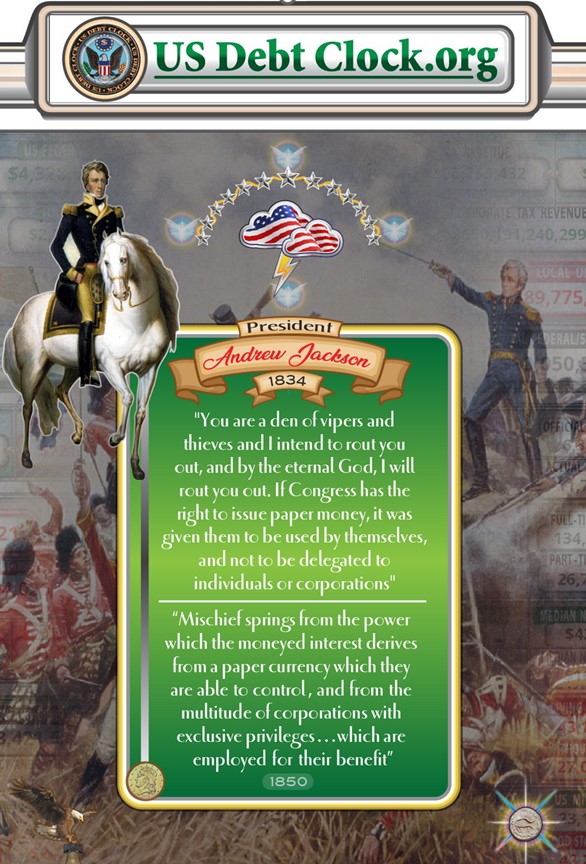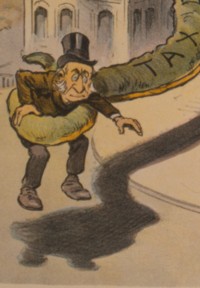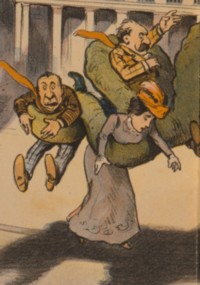God The Original Intent
The divine hand behind the establishment of the United States, founding documents, and the new "Restored Republic." .

Quotes on Debt
“There are two ways to enslave a nation. One is by the sword. The other is by debt.”
— John Adams (1797-
“The liberties of a people never were, nor ever will be, secure, when the transactions of their rulers may be concealed from them.”
— Patrick Henry (1736-1799) Patriot, Lawyer and Orator


“The power to tax involves the power to destroy.”
— John Marshall (1755-
“The borrower is the slave of the lender.”
— Proverbs 22:7
“I place economy among the first and most important of virtues, and public debt as the greatest of dangers to be feared.” “To preserve our independence we must not let our leaders load us with perpetual debt. ….If we can prevent the government from wasting the labours of the people under the pretence of caring for them, we will be wise.”
— Thomas Jefferson, Author of the Declaration of Independence, 3rd President of the U. S.
“Allow a government to decline paying its debts and you overthrow all public morality-
— Alexander Hamilton (1755-
“As a very important source of strength and security, cherish public credit. One method of preserving it is to use it as sparingly as possible, avoiding occasions of expense by cultivating peace, but remembering, also, that timely disbursements to prepare for danger frequently prevent much greater disbursements to repel it; avoiding likewise the accumulation of debt, not only by shunning occasions of expense, but by vigorous exertions in time of peace to discharge the debts which unavoidable wars have occasioned, not ungenerously throwing upon posterity the burden which we ourselves ought to bear.”
— George Washington (1732-
“As parents, we can have no joy, knowing that this government is not sufficiently lasting to ensure any thing which we may bequeath to posterity: And by a plain method of argument, as we are running the next generation into debt, we ought to do the work of it, otherwise we use them meanly and pitifully. In order to discover the line of our duty rightly, we should take our children in our hand, and fix our station a few years farther into life; that eminence will present a prospect, which a few present fears and prejudices conceal from our sight.”
— Thomas Paine (1736-
“I go on the principle that a Public Debt is a Public curse and in a Republican Government a greater than in any other.”
— James Madison (1751-
“Think what you do when you run in debt; you give to another power over your liberty.”
— Benjamin Franklin (1706-
“Blessed are the young, for they shall inherit the national debt.”
— Herbert Hoover (1874-
“The same prudence which in private life would forbid our paying our own money for unexplained projects, forbids it in the dispensation of the public moneys.”
— Thomas Jefferson, Author of the Declaration of Independence, 3rd President of the U. S.
“People are tired of wasteful government programs and welfare chiselers, and they’re angry about the constant spiral of taxes and government regulations, arrogant bureaucrats, and public officials who think all of mankind’s problems can be solved by throwing the taxpayers’ dollars at them.”
— Ronald Reagan (1911-
“No pecuniary consideration is more urgent, than the regular redemption and discharge of the public debt: on none can delay be more injurious, or an economy of time more valuable.”
— George Washington (1732-
“It is incumbent on every generation to pay its own debts as it goes. A principle which if acted on would save one-
— Thomas Jefferson, Author of the Declaration of Independence, 3rd President of the U. S.
“If you would know the value of money; go, and try to borrow some! For, he that goes a borrowing, goes a sorrowing! and indeed, so does he that lends to such people, when he goes to get it in again!”
— Benjamin Franklin (1706-
“To say that the United States should be answerable for twenty-
— James Madison (1751-
“But with respect to future debt; would it not be wise and just for that nation to declare in the constitution they are forming that neither the legislature, nor the nation itself can validly contract more debt, than they may pay within their own age, or within the term of 19 years.”
— Thomas Jefferson, Author of the Declaration of Independence, 3rd President of the U. S.
” … it may meet within the year all the expenses of the year, without encroaching on the rights of future generations, by burdening them with the debts of the past.”
— Thomas Jefferson, Author of the Declaration of Independence, 3rd President of the U. S.
“Let every man, every corporation, and especially let every village, town, and city, every county and State, get out of debt and keep out of debt. It is the debtor that is ruined by hard times.”
— Rutherford B. Hayes (1822–1893) Nineteenth President of the United Sates
“I am not among those who fear the people. They, and not the rich, are our dependence for continued freedom. And to preserve their independence, we must not let our rulers load us with perpetual debt. We must make our election between economy and liberty, or profusion [extravagance of expenditures] and servitude. If we run into such debts, as that we must be taxed in our meat and in our drink, in our necessaries and our comforts, in our labors and our amusements, for our callings and our creeds …”
— Thomas Jefferson, Author of the Declaration of Independence, 3rd President of the U. S.
“I regret, as much as any member, the unavoidable weight and duration of the burdens to be imposed; having never been a proselyte to the doctrine, that public debts are public benefits. I consider them, on the contrary, as evils which ought to be removed as fast as honor and justice will permit.”
— James Madison (1751-
“I wish it were possible to obtain a single amendment to our Constitution. 1 would be willing to depend on that alone for the reduction of the administration of our Government to the genuine principles of its Constitution; I mean an additional article, taking from the federal Government the power of borrowing.”
— Thomas Jefferson, Author of the Declaration of Independence, 3rd President of the U. S.
“Our tax policy is engineered by people who view tax as a means of achieving changes in our social structure.”
— Ronald Reagan (1911-
“We could say they [government] spend like drunken sailors, but that would be unfair to drunken sailors, because the sailors are spending their own money.”
— Ronald Reagan (1911-
“For decades, we have piled deficit upon deficit, mortgaging our future and our children’s future for the temporary convenience of the present. To continue this long trend is to guarantee tremendous social, cultural, political, and economic upheavals. You and I, as individuals, can, by borrowing, live beyond our means, but for only a limited period of time. Why, then, should we think that collectively, as a nation, we are not bound by that same limitation?”
— Ronald Reagan (1911-
“That we are bound to defray the expenses of the war within our own time, and unauthorized to burthen posterity with them, I suppose to have been proved in my former letter. …There have existed nations, and civilized and learned nations, who have thought that a father had a right to sell his child as a slave, in perpetuity; that he could alienate his body and industry conjointly, and à fortiori (argument) his industry separately; and consume its fruits himself. …But we, this age, and in this country especially, are advanced beyond those notions of natural law. We acknowledge that our children are born free; that that freedom is the gift of nature, and not of him who begot them; that though under our care during infancy, and therefore of necessity, under a duly tempered authority, that care is confided to us to be exercised for the good of the child only; and his labors during youth are given as a retribution for the charges of infancy. …we shall all consider ourselves unauthorized to saddle posterity with our debts, and morally bound to pay them ourselves : and consequently within what may be deemed the period of a generation, or the life [expectancy] of the majority. We must raise, then, ourselves the money for this war, either by taxes within the year, or by loans ; and if by loans, we must repav them ourselves, proscribing forever the English practicv of perpetual funding; the ruinous consequences of which, putting right out of the question.”
— Thomas Jefferson, Author of the Declaration of Independence, 3rd President of the U. S.
“Avoid occasions of expense … and avoid likewise the accumulation of debt not only by shunning occasions of expense but by vigorous exertions to discharge the debts, not throwing upon posterity the burden which we ourselves ought to bear.”
— George Washington (1732-
“And I sincerely believe, with you, that banking establishments are more dangerous than standing armies; and that the principle of spending money to be paid by posterity, under the name of funding, is but swindling futurity on a large scale.”
— Thomas Jefferson, Author of the Declaration of Independence, 3rd President of the U. S.




“There is no dignity quite so impressive, and no independence quite so important, as living within your means.”
— Calvin Coolidge (1872-
“We don’t have a trillion-
— Ronald Reagan (1911-
“The multiplication of public offices, increase of expense beyond income, growth and entailment of a public debt, are indications soliciting the employment of the pruning knife.”
— Thomas Jefferson, Author of the Declaration of Independence, 3rd President of the U. S.
“As parents, we can have no joy, knowing that this government is not sufficiently lasting to ensure any thing which we may bequeath to posterity: And by a plain method of argument, as we are running the next generation into debt, we ought to do the work of it, otherwise we use them meanly and pitifully. In order to discover the line of our duty rightly, we should take our children in our hand, and fix our station a few years farther into life; that eminence will present a prospect, which a few present fears and prejudices conceal from our sight.”
— Thomas Paine (1736-
“With respect to future debts, would it not be wise and just for that nation to declare, in the constitution they are forming, that neither the legislature, nor the nation itself, can validly contract more debt than they may pay within their own age, or within the term of 19. years? And that all future contracts will be deemed void as to what shall remain unpaid at the end of 19. years from their date? This would put the lenders, and the borrowers also, on their guard. By reducing too the faculty of borrowing within it’s natural limits, it would bridle the spirit of war, to which too free a course has been procured by the inattention of money-
— Thomas Jefferson, Author of the Declaration of Independence, 3rd President of the U. S.
“He that goes a borrowing goes a sorrowing.”
— Benjamin Franklin (1706-
“The same prudence which in private life would forbid our paying our own money for unexplained projects, forbids it in the dispensation of the public moneys.”
— Thomas Jefferson, Author of the Declaration of Independence, 3rd President of the U. S
“That loans, in times of public danger, especially from foreign war, are found an indispensable resource, even to the wealthiest of them … And as, on the one hand, the necessity for borrowing, in particular emergencies, cannot be doubted, so, on the other, it is equally evident that, to be able to borrow upon good terms, it is essential that the credit of a nation should be well established.
For, when the credit of a country is in any degree questionable, it never fails to give on extravagant premium, in one shape or another, upon all the loans it has occasion to make. Nor does the evil end here; the same disadvantage must be sustained upon whatever is to be bought on terms of future payment. From this constant necessity of borrowing and buying dear, it is easy to conceive how immensely the expenses of a nation, in a course of time, will be augmented by an unsound state of the public credit.
To attempt to enumerate the complicated variety of mischiefs in the whole system of the social economy, which proceed from a neglect of the maxims that uphold public credit, and justify the solicitude manifested by the House on this point, would be an improper intrusion on their time and patience.
In so strong a light, nevertheless, do they appear to the Secretary, that, on their due observance, at the present critical juncture, materially depend, in his judgment, the individual and aggregate prosperity of the citizens of the United States; their relief from the embarrassments they now experience; their character as a people; the cause of good government.”
— Alexander Hamilton (1755-
“Rather go to bed supperless than rise in debt.”
— Benjamin Franklin (1706-
“It is a wise rule and should be fundamental in a government disposed to cherish its credit, and at the same time to restrain the use of it within the limits of its faculties, ‘never to borrow a dollar without laying a tax in the same instant for paying the interest annually, and the principal within a given term; and to consider that tax as pledged to the creditors on the public faith.'”
— Thomas Jefferson, Author of the Declaration of Independence, 3rd President of the U. S.
“To contract new debts is not the way to pay old ones.”
— George Washington (1732-
“The mass of mankind has not been born with saddles on their backs, nor a favored few booted and spurred, ready to ride them legitimately, by the grace of God.”
— Thomas Jefferson, Author of the Declaration of Independence, 3rd President of the U. S.
“The mass of mankind has not been born with saddles on their backs, nor a favored few booted and spurred, ready to ride them legitimately, by the grace of God.”
— Thomas Jefferson, Author of the Declaration of Independence, 3rd President of the U. S.
“But with respect to future debt; would it not be wise and just for that nation to declare in the constitution they are forming that neither the legislature, nor the nation itself can validly contract more debt, than they may pay within their own age, or within the term of 19 years.”
— James Madison (1751-
“It is a wise rule and should be fundamental in a government disposed to cherish its credit, and at the same time to restrain the use of it within the limits of its faculties, never to borrow a dollar without laying a tax in the same instant for paying the interest annually, and the principal within a given term; and to consider that tax as pledged to the creditors on the public faith.”
— Thomas Jefferson, Author of the Declaration of Independence, 3rd President of the U. S.
“We must have no carelessness in our dealings with public property or the expenditure of public money. Such a condition is characteristic of undeveloped people, or of a decadent generation.”
— Calvin Coolidge (1872-
“As parents, we can have no joy, knowing that this government is not sufficiently lasting to ensure any thing which we may bequeath to posterity: And by a plain method of argument, as we are running the next generation into debt, we ought to do the work of it, otherwise we use them meanly and pitifully. In order to discover the line of our duty rightly, we should take our children in our hand, and fix our station a few years farther into life; that eminence will present a prospect, which a few present fears and prejudices conceal from our sight.”
— Thomas Paine (1736-
“A government which lays taxes on the people not required by urgent public necessity and sound public policy is not a protector of liberty, but an instrument of tyranny.”
— Calvin Coolidge (1872-
“Deficits, as I’ve often said, aren’t caused by too little taxing, they’re caused by too much spending. Presidents can’t appropriate a dollar of tax payers money, only Congressmen can; and Congress is susceptible to all sorts of influences that have nothing to do with good government.”
— Ronald Reagan (1911-
“To compel a man to furnish contributions of money for the propagation of opinions which he disbelieves and abhors, is sinful and tyrannical.”
— Thomas Jefferson (1743-
“These United States are confronted with an economic affliction of great proportions. We suffer from the longest and one of the worst sustained inflations in our national history. It distorts our economic decisions, penalizes thrift, and crushes the struggling young and the fixed-
— Ronald Reagan (1911-
“And the LORD will make you abound in prosperity, in the fruit of your body, and in the fruit of your cattle, and in the fruit of your ground, within the land which the LORD swore to your fathers to give you. The LORD will open to you his good treasury the heavens, to give the rain of your land in its season and to bless all the work of your hands; and you shall lend to many nations, but you shall not borrow. And the LORD will make you the head, and not the tail; and you shall tend upward only, and not downward; if you obey the commandments of the LORD your God, which I command you this day, being careful to do them, and if you do not turn aside from any of the words which I command you this day.”
— Deuteronomy 28: 13-
Note: For his oath of office as president, Washington requested the Bible be opened to Deuteronomy 28:, upon which he placed his hand.
“And you shall hallow the fiftieth year, and proclaim liberty throughout the land to all its inhabitants; [proclaim liberty throughout all the land unto all the inhabitants thereof: KJV] it shall be a jubilee for you, when each of you shall return to his property [freedom from debt bondage] and each of you shall return to his family. A jubilee shall that fiftieth year be to you; in it you shall neither sow, nor reap what grows of itself, nor gather the grapes from the undressed vines. For it is a jubilee; it shall be holy to you; you shall eat what it yields out of the field. ‘In this year of jubilee each of you shall return to his property. …You shall not wrong one another, but you shall fear your God; for I am the LORD your God. ‘Therefore you shall do my statutes, and keep my ordinances and perform them; so you will dwell in the land securely.’”
— Leviticus 25:10-
“I sincerely believe that banking establishments are more dangerous than standing armies, and that the principle of spending money to be paid by posterity, under the name of funding, is but swindling futurity on a large scale.”
— Thomas Jefferson (1743-
How Will We Be Judged?
“Soon, thousands of Americans will be converging on Concord and Lexington to observe the 200th anniversary of the beginning if this nation’s struggle for self government and freedom from the English crown. The significance of the event has ignited a spirit of patriotism and gratitude which harken back to the day when the memorable sacrifices were made which were to lead to this nation’s independence and it’s growth to the strongest, most powerful and respected nation in the history of the world. …
In this regard, it is most important as we look at the past, honor those who fought for freedom, and remember and cherish our birthright as free Americans, that we take a look at the present and what is important for the future. For the present generation serves as the guardian and steward of the future and by it actions must be held accountable to that future.
There cab be little doubt about that the freedom and happiness of future generations has been placed in serious jeopardy by the actions of the immediate past and present. The freedom which was won at the sacrifice and which such personal deprivation, has been protected and strengthened by countless thousands of brave and dedicated men and women through year of conflict and stress. Americans have always served when called upon. Since the inception of this nation, promoting its best interests, protecting its institutions from external aggression attack, constantly alert to any hostile threat.
However, during recent years, evidence is accumulating that must make thoughtful Americans must make thoughtful Americans most fearful for the liberty and welfare of future generation. Staggering deficits have been accumulated to form a monumental debt which must be paid by the future. Government bureaucracy has stealthy stolen more and more responsibly for the actions of the individual, leaving more and more Americans dependent on government. Partially or completely, for their support. …
— Edward Woodmand Tuttle (1927-1989) – The Spirit – 1775-1975 (supplement to Beacon Publication) pg 2.